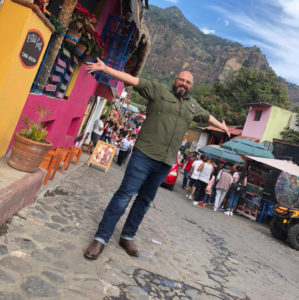• IDRA Newsletter • April 2020 •


As a second-generation American, Bricio is vividly aware of the sacrifices his Mexican immigrant parents endured for him to be raised in the United States and seize educational opportunities. Growing up in border city, Bricio witnessed the juxtaposition of poverty on the Mexican side of the border versus the middle-class opportunities on the U.S. side. That view of the world prompted him to never to take anything for granted.
Education fosters social mobility, civic participation, better health, longer life-expectancy and life satisfaction. “I have gained much from my educational pursuits and have witnessed education transform others’ lives,” Bricio said. Educational equity has been his life mission and he aspires to continue this work for decades to come.
Bricio serves on the Texas Counts Census Campaign as the co-chair of the education subcommittee. The Texas Commissioner of Education recently appointed him to serve on the statewide compensatory education advisory committee that will review school funding changes adopted in 2019 and advise the state agency on rules for implementation.
He earned a bachelor’s degree in psychology from Texas Tech University, a master’s degree in sociology from Texas State University, and a doctorate in applied demography from the University of Texas at San Antonio. He is originally from Brownsville, Texas, and lives in San Antonio. In his free time, he enjoys backpacking Big Bend National Park, saltwater fishing in the lower Laguna Madre with his father and brother, and dancing cumbia, salsa and two-step.
[©2020, IDRA. This article originally appeared in the April 2020 IDRA Newsletter by the Intercultural Development Research Association. Permission to reproduce this article is granted provided the article is reprinted in its entirety and proper credit is given to IDRA and the author.]


